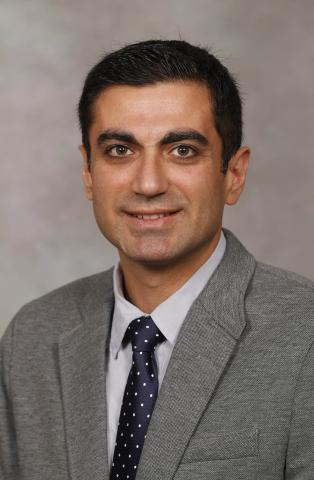Invited Faculty Talk: Amir Behzadan

Speaker: Dr. Amir Behzadan (Professor, Texas A&M University)
Date: Monday, October 10, 2022
Time: 12:15 - 1:30 pm
Location: Bren Hall, Seminar Room 4016
Zoom: https://ucsb.zoom.us/j/86755203390
Title: Leveling the Playing Field: Artificial Intelligence for Equitable and Inclusive Disaster Resilience
Abstract:
The increasing number and intensity of climate disasters in recent years, combined with the asymmetric population growth in disaster prone areas, has made it extremely difficult to rely on conventional methods of disaster risk mapping and impact assessment. Current methods that use historical evidence to predict the impact of future disasters largely fail to account for the fast pace of urbanization, unfolding consequences of climate change, and constantly evolving natural-built environment interface. For instance, existing flood maps, that are a critical part of community resilience and flood warning systems, are outdated, cover only a limited portion of streams and shorelines, and are also not generally designed to account for flooding caused by intense rainfall, an emerging problem as the atmosphere warms. If effectively and responsibly used, new data analytics and sensing technologies can transform our approach to disaster resilience by enabling the reliable and equitable quantification of disaster impacts at high spatiotemporal scales, and augmenting the human ability to perceive disaster risk in an effective and unbiased manner. This talk will discuss research in the Connected Informatics and Built Environment Research (CIBER) Lab to address socio-technological challenges that have emerged from the use of big data and artificial intelligence (AI) in disaster management at the intersection of natural and built environments. The primary focus will be on demonstrating the thought process, design, and pilot implementation of human-centered AI algorithms and supporting systems that transform raw multi-sourced data into actionable spatiotemporal knowledge to improve disaster damage assessment, decision making, and risk communication in a responsible and fair manner.
Bio:
Dr. Amir Behzadan is a Professor at Texas A&M University. He is affiliated with Texas A&M Data Science Institute, Hazard Reduction and Recovery Center (HRRC), Center for Infrastructure Renewal (CIR), and Geospatial Sciences, Applications, and Technology (GEOSAT) Center. Amir has received his Ph.D. degree in civil engineering and his M.S. degree in construction engineering and management both from the University of Michigan, Ann Arbor. His research is funded by the National Science Foundation (NSF) and the National Oceanic and Atmospheric Administration (NOAA), and supports built environment resilience against climate disasters via equitable and inclusive data analytics and human-aware computing systems. Dr. Behzadan has authored 54 peer-reviewed journal articles, 72 peer-reviewed conference papers, and 7 books/book chapters. He has given several invited keynote speeches and a TEDx Talk, and received multiple research, teaching, and service awards including the Best Paper Award in the 4th International Conference on Civil and Building Engineering Informatics (ICCBEI), the Best Dataset Award (second place) from the Data, Sensing, and Analytics (DSA) Committee of the American Society of Civil Engineers (ASCE), the Outstanding New Teaching Award from the American Society of Engineering Education (ASEE), and the ASCE Excellence in Civil Engineering Education (ExCEEd) Fellowship. He is an associate editor of the Journal of Smart and Sustainable Built Environment, and serves on the editorial board of the ASCE Journal of Construction Engineering and Management.